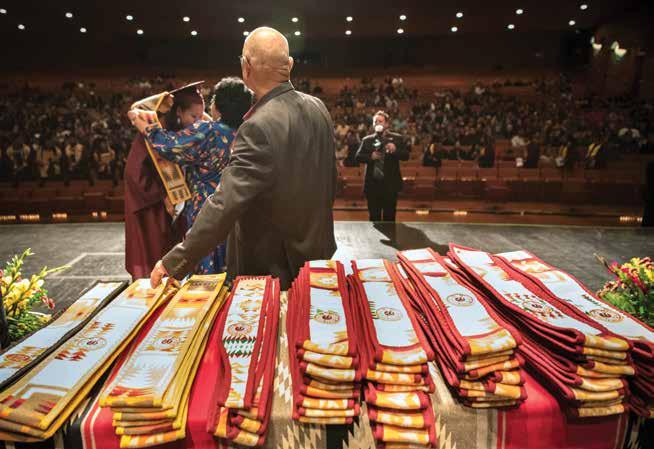
3 minute read
Burnout: A story of reflection, rest and prayer
burnout
a story of reflection, rest & prayer
Advertisement
The 2017 year was amazing. I accomplished more than I ever thought I could and turned one of my lifelong dreams into reality. I was accepted into ASU’s Sandra Day O’Connor College of Law.
However, this came at a high price. Once I began law school, my life changed. I was greeted with a highly competitive environment coupled with corresponding worries about failure, intimidation over instructional methods and curriculum, brutal workloads, and the overall adversarial nature of the legal system. These realties impacted my relationships, not only with myself, but also with those I love.
I always felt confident in my abilities to perform academically because I believed in my ability to prepare and work hard. I soon learned that preparation was not enough. The ambitious attitude that once made me an “overachiever” in high school and college slowly began to dissolve. I somehow had to exceed “above and beyond.” This scenario caused me to doubt my abilities and my reasons for continuing a professional education. Ultimately, I burned out.
Burnout is a state of chronic stress that leads to physical and emotional exhaustion, cynicism and detachment, with feelings of ineffectiveness and lack of accomplishment. This stressful phenomenon can manifest itself in symptoms such as chronic fatigue, insomnia, forgetfulness, impaired concentration, loss of appetite, anxiety, and depression.
I learned that sometimes people do not even know that they are experiencing burnout.
And sometimes people are aware of their feelings, but fear being labeled as “weak” or “depressed” and therefore remain silent. I was a combination of these people.
Due to the competitive environment I was in, I did not want to admit that I was not performing at my best. Neither could I afford nor did I want to be anything less than at my peak performance. It was until I was no longer able to function effectively on personal and professional levels that I knew I needed to make some changes.
I began researching my symptoms and learned about burnout. I always heard about it from faculty but dismissed it because I thought it would not happen to me. Until it did. While I think we are predisposed to burnout due to external factors, like being first-generation minority students often coming from middleto low-income households, there are many other factors within our control. Our mental, emotional, physical and spiritual health contributes to stress.
I fought hard to overcome burnout with reflection, rest and prayer. Reflection was a huge factor in getting myself out of this funk. I took the time to meditate on who I was, who I am becoming and what I want out of life. This allowed me to let go of unnecessary, stressful thoughts and focus on what truly mattered to me.
When winter break arrived, I did the things I enjoyed: being with friends and family, watching movies, taking my dog to the park, going trail running and sleeping. I allowed myself to rest and have these breaks because I knew that was what I needed to return to my true self.
Prayer was a vital component of my recovery. I grew up learning traditional Navajo teachings that encompassed spirituality. I noticed at some point, I was not praying like I usually do. It was not because faith wavered, but simply because my thoughts revolved around what I was learning at school. However, once I was on winter break, I had time to stop and think. I began praying with corn pollen in the mornings like I was always taught. As I continued this routine, I became more positive and my faith in the unknown strengthened.
For most Native students, we are constantly told to get a college education for our families and our communities, but in this process, we may neglect our own personal reasons as to why we are seeking this goal. I am sharing my experience with burnout to help create awareness surrounding this topic and to reassure those who may be feeling this way that they are not alone. I hope that you see this experience as a form of restoration and not loss. Be proud of how far you have come and know that resiliency runs in your veins. Know that the work you are doing and contributing will be felt by more than yourself.









